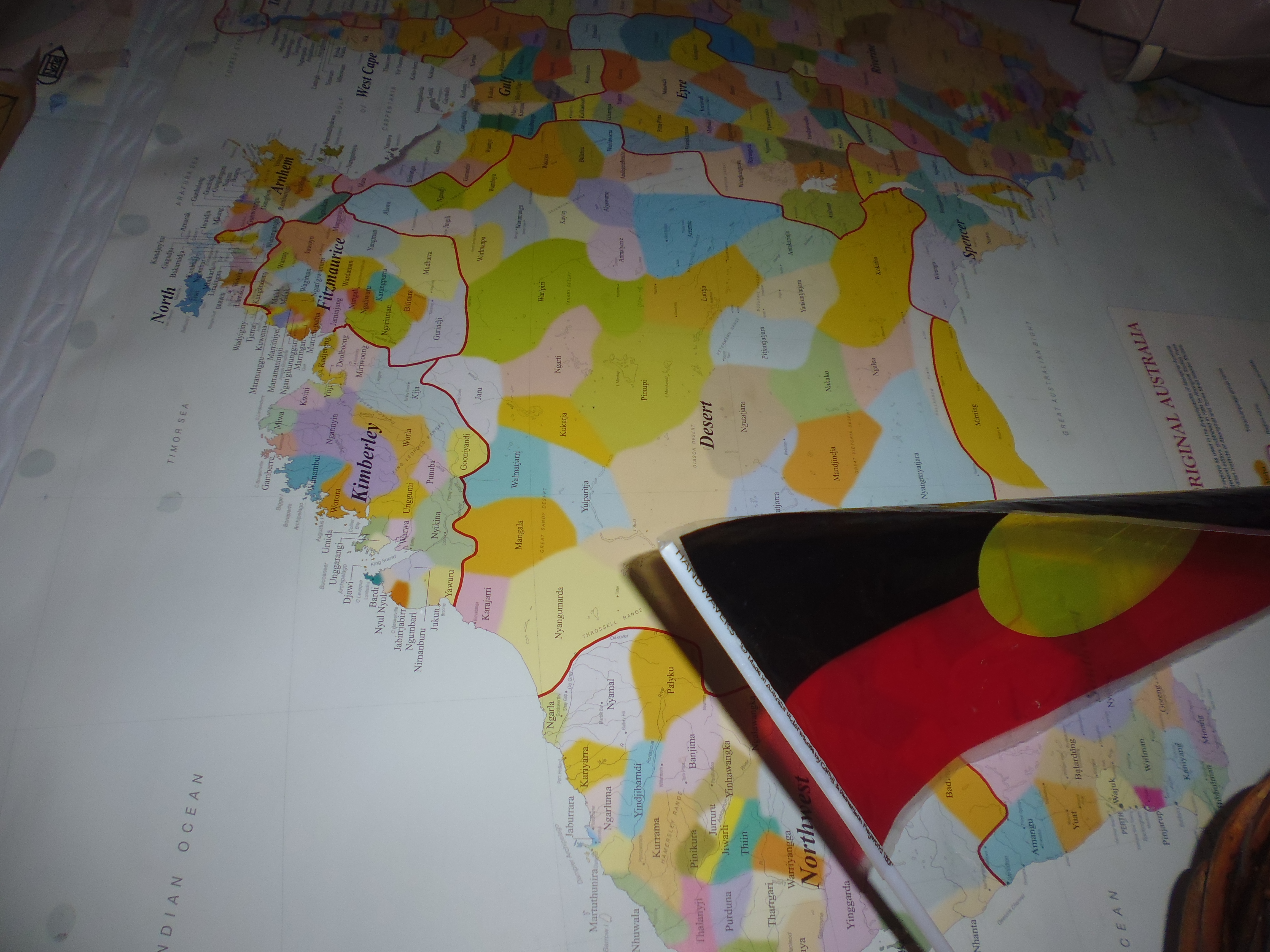Blog
Our history and why we need a Treaty

Our past = our present
The town where I live, Moe, in the Latrobe Valley, Gippsland, has been the home of Gunaikurnai people for over 40,000 years. The name ‘Moe’ means ‘swampy country’ in Gunaikurnai. My home on the southern end of town was a natural paperbark swamp until the area for miles around was drained via what is still known as the ‘Moe Drain’. The Valley is home to Gunaikurnai people, as well as European, Asian, African, Pacific Islander, New Zealander, Tiwi Islander and First Nations people from other areas of Australia.
First Nations people are obviously aware of our history, of the genocide in this country. They live with the effects of that history and genocide, and racism, every day. Many non-Indigenous Australians are also aware of the genocide and all the other murky parts of our country’s history, as well as our murky present, but don’t want to think or talk about it. They’re happy with the status quo.
But all Australians, at least those who were born in this land, share a collective memory of the past 200 plus years’ history of this country that includes shame and grief, guilt and fear, and has been built on racism and violence.
Our collective national trauma, conscious or unconscious, direct or vicarious, and the systemic racism that all our government institutions are built on, sometimes explode into the open – as anger, violent racism, grief, shame, depression or other mental illnesses, or creative arts (dance, song, visual art).
But for many Australians, this trauma smoulders away inside.
In Australia, there has been no national mourning, no funeral, no burial. No national recompense for or formal acknowledgement of the genocide or the theft of land. In Australia it is thought ‘radical’ to state the fact openly, that all non-Indigenous Australians are living on stolen land.
Last century, someone said ‘sorry’ for the Stolen Generation. Some land was given back. This century, some stolen wages were paid back. Different states are talking about ‘reconciliation’, based on the false premise that there was in the past a sort of conciliation. But no Australian national leader has ever said sorry for the invasion, theft of property, genocide, or for imprisoning Aboriginal people in concentration-camp-style institutions for generations.
And no national leader has mentioned that the stolen property that is Australia will, like all stolen property, remain stolen until it is given back or paid for.
Genocide
Most non-Indigenous people in Australia don’t want to talk about who did the killing, who stole the land from First Nations families, and who’s now got the land. They don’t want to know, especially if their own ancestors were among those who stole that land in the 1800s. They say it’s water under the bridge, so long ago, let’s put it behind us.
They don’t realise, or want to know, that our past lives on through our present.
But hard as it is, non-Indigenous people need to acknowledge and talk about the genocide. That white settlers – and their militias, and soldiers, and police forces – shot First Nations people on sight, individually and also in massacres, in every state and territory in Australia during the late 1700s and the first half of the 1800s in the southern states, and in the late 1800s and the early 1900s in the north. Thousands of First Nations people were murdered and displaced during my Irish/Scottish ancestors’ generation while they were farming on ‘their’ properties in Victoria in the 1830s-1860s.
I was born in 1964; if my parents had been First Nations, my parents and I would have been a non-citizen, wards of the state, and I would have been abducted by the government and raised in an institution and sent out to work as a slave. But I was born into a white settler family: i.e., into a life of privilege.
In 2019, one in five Aboriginal people aged over 50 were what we call ‘Stolen Generations’. They were removed from their families by the government and trained to be servants or labourers, and sent out to be slave servants or labourers while they were still children. This ‘Aboriginal slave labour’ continued well into the 1970s; that’s only 50 years ago.
We need a national treaty
Yothu Yindi have been singing the same unwavering message to Australians for decades and are still singing strong: Treaty Now!
All Australians need to understand that this land is stolen. A national treaty is the only way to find the path of truth Australians need to walk if we are to create a better Australia for all of us.
The first step in this process will be for our leaders to address the Uluru Statement of the Heart.
Further reading
Non-Indigenous writers:
- The denial of white privilege is Australia is hegemonic (2021 article)
- Why didn’t they teach us Australian history at school? (2018 article)
- White privilege: unpacking the invisible knapsack (2016 article)
Note: Peter Gardner, Timothy Bottoms and Henry Reynolds and other non-Indigenous historians have been writing books about the real history of Australia for many years. Other non-Indigenous historians continue to write and publish books that tell their ‘white’ version of Australian history.
First Nations historians and writers to look out for include, among others:
- Magabala books (Australia’s leading First Nations publisher)
- Philip Pepper (The Kurnai of Gippsland)
- Bruce Pascoe (Dark Emu – black seeds , Young Dark Emu and Salt: selected essays and stories)
- Central Land Council (Every hill got a story)
- Anita Heiss (ed) (Growing up Aboriginal in Australia), and others
- Sally Morgan (My Place, and others)
- Anita Heiss and Peter Minter (eds) (Macquarie Pen Anthology of Aboriginal Literature)
- Marcia Langton: Welcome to Country), and others.
Note: this article was first written and published in 2019. I have slightly updated it in 2022.
Back To Blog

